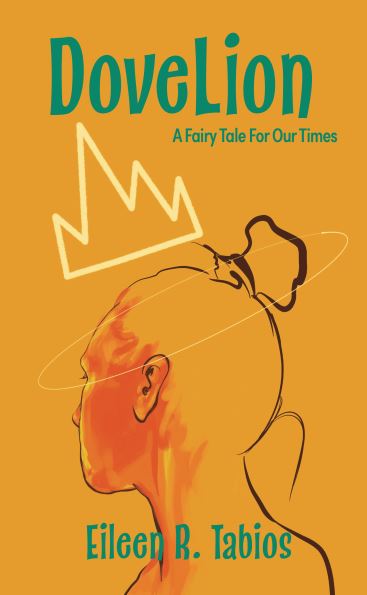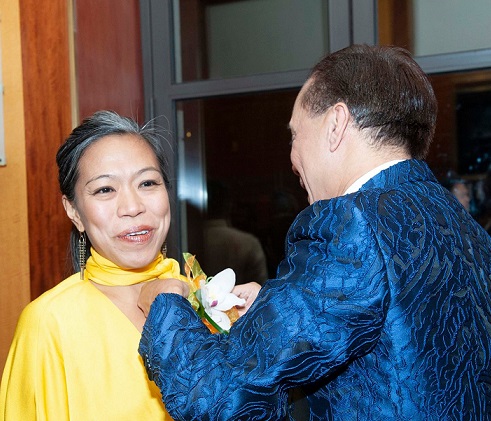‘DoveLion:’ Another novel about a fictional Philippine dictator

By Allen Gaborro
In the realm of poetry, Eileen R. Tabios has been as creative and prolific as any of her contemporaries going back almost 30 years. Like a fine wine, her poems have over time become more evolutionary and evocative from the first moment Tabios put them on paper.
“DoveLion: A Fairy Tale for Our Times” is one of Tabios’s recent productions. Indeed, it is her first novel. Her poetic prowess is on full display in the book. Veritably in “DoveLion”, Tabios never loses her poetic rhythm, pathos, and talent for heartfelt and existential interiorization as she flies in contradistinction of orthodox literary renderings.
“DoveLion”—the title being a play on the pseudonym of Filipino poet Jose Garcia Villa—is a story about Elena Theeland, a poet no less, whose palpable sense of calling to mind what has come to pass in her life is articulated in the tone of a cautionary line: “We are all fragile—without memory, we are nothing.”
Theeland’s reminder carries with it her family’s efforts to bring down the autocracy in the invented state of Pacifica. Memory for Theeland remains undissipated towards that end as she forwards a lamentive refrain, “Once upon a time, a dictator made me an orphan.”
She speaks of the father who lost his life while resisting “The Dictator,” a plausible allusion to Philippine strongman Ferdinand Marcos. In an ironic turn, Theeland is accompanied and abetted by the son of a Central Intelligence Agency agent, Ernst Blazer. Theeland’s relationship with Ernst is ironic because the latter’s father is cast as being guilty of her own father’s demise.
But there is much else besides the dramatic tension between Elena Theeland and Ernst Blazer, not to mention the freedom-versus-tyranny polarity in “DoveLion.” Thematic threads, some subtle, some overt, such as Philippine history and culture, the will to remembrance, foreign imperialism, amorous pursuits, and a harking back to premodern paradigms, run movingly and pensively through Tabios’s sinuous novel.

There is no question that Eileen Tabios is a beguiling poetical writer. In “DoveLion” she puts together a venerable body of poetic sentences and passages which, strange as it may sound, is at once the book’s strength and weakness.
Even as Tabios brilliantly exhibits her profound wordcraft, she strays from what would’ve been better off as a more crisply constructed plot. As it is, what could be called “DoveLion’s” plot feels just out of reach, its form and content oftentimes nebulous as a result of consciously or subconsciously making the novel a little too postmodern if you will.
I have read my share of experimental, boundary-flouting, unconventional authors. So I am not unfamiliar with works that put comparatively less emphasis on formal storytelling and more on the fluid and protean character of language and the heterogeneous perspectivism it can engender.
But I found Tabios’s waxing and waning narrative architecture qualitatively inferior to her compelling diction, utterances, and turns of phrases. To be fair, it’s no simple task for a first-time novelist to seamlessly balance intriguingly supple poetics with a story that is comfortably comprehensible for patrons of fiction.
“DoveLion” does however have a saving grace other than the treasure of its poetry. The book indelibly illustrates the fertile spiritual and emotional struggle and affecting introspection taking place in its text. That’s something that the best of plots cannot accomplish on their own.
Support independent bookstores! Bookshop is an online bookstore with a mission to financially support local, independent bookstores. Below is a link to TheFilam.net Bookshop page.
© The FilAm 2022











